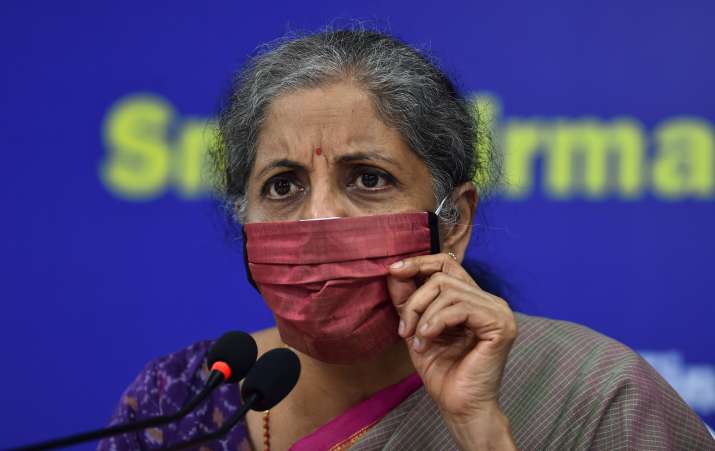No consensus on shortfall in GST compensation cess: Says Nirmala Sitharaman
 NEW DELHI : Finance Minister Nirmala Sitharaman, who heads the Council, said the Centre cannot borrow and pay states for the shortfall as it would lead to rise in bond yields, resulting in rise in borrowing costs for the government and the private sector.
NEW DELHI : Finance Minister Nirmala Sitharaman, who heads the Council, said the Centre cannot borrow and pay states for the shortfall as it would lead to rise in bond yields, resulting in rise in borrowing costs for the government and the private sector.
While some opposition ruled states are demanding that a Group of Ministers be set up to arrive at a decision on the mechanism for funding compensation shortfall, BJP ruled states, which have already opted for the borrowing option given by the Centre, are of the view that they should be given a go-ahead so that they can get money quickly.
Ten states, which are governed by parties not part of the National Democratic Alliance, have rejected the finance ministry’s proposal that the state governments should borrow to meet the shortfall in GST revenue and have demanded the setting up of a dispute settlement mechanism.However, other states insisted on a decision to be taken by consensus, she said. “We were not able to arrive at a consensus,” she added.
Sitharaman, earlier in the day, addressed announced steps to stimulate consumer demand including advance payment of a part of the wages of central government employees for spending during the festival season and a 50-year interest free loan to states, part of efforts to bolster the pandemic-hit economy.She however said this would not be the case if states borrowed against future GST receipts, adding 21 states had agreed to borrow as suggested by the Centre.
In its previous meeting last week, the Council had decided to extend the surcharge on taxes on luxury goods such as cars and tobacco products beyond June 2022 but failed to reach a consensus on ways to compensate states for loss of tax revenue.The projected total compensation shortfall in the current fiscal stands at Rs 2.35 lakh crore.
The Centre had in August given two options to the states — to borrow either Rs 97,000 crore from a special window facilitated by the RBI or Rs 2.35 lakh crore from the market. It had also proposed extending the compensation cess levied on luxury, demerit and sin goods beyond 2022 to repay the borrowing. Following a demand by some states, the amount of Rs 97,000 crore was increased to Rs 1.10 lakh crore.
As many as 21 states which are BJP-ruled or have supported it on various issues have opted to borrow Rs 1.10 lakh crore to meet the compensation shortfall. The Centre has released Rs 20,000 crore to the states towards compensation shortfall so far in the current fiscal. Under the GST structure, taxes are levied under 5, 12, 18 and 28 per cent slabs.
On top of the highest tax slab, a cess is levied on luxury, sin and demerit goods, and the proceeds from the same are used to compensate states for any revenue loss. But due to a slowdown in the economy, collections have fallen short of the money needed for compensating states.
GST compensation has emerged as a sore point with state and union territory governments this year, particularly with the adverse economic impact of the Covid pandemic and lockdown.
The centre is finding it difficult to pay states compensation – due if a state’s revenue grows slower than 14 per cent – because states have not earned much this year due to months of lockdown necessitated by the COVID-19 crisis.
The Congress has called the delay a “sovereign default” and going back on constitutional guarantees that were the reason states came on board with the GST regime. Several opposition-ruled states, including Punjab, Bengal and Kerala, have been similarly upset.
(With Agency Inputs).

